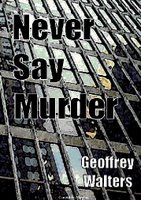Agent & Editor Q&A: Agent Four (Jenny Bent!)
Her bio from the Trident website is right here, but rest assured that she has a who's-who in literature as her client list. "She has been working for 10 years in the publishing industry as an editor, bookseller, and literary agent. Jenny has a BA/MA with first class honors from Cambridge University in the UK; she grew up in Harrisonburg, Virginia" and her previous proximity to the University of Virginia is something we try not to hold against her.
Girl: Thanks for stopping by, Jenny. Feel free to dive into the fruit and cheese platter. Don't fill up too much, though--the masseurs will be here shortly. In the mean time, please tell us about some of your greatest POD/self-pub success stories.
Jenny: I hate to answer this one for fear of leaving someone out, but I think the most obvious one is of course Laurie Notaro, who tried to get published for seven years before she finally went to iUniverse. She took out an ad at Amazon that popped up every time you looked at the Sweet Potato Queens Book of Love page (unfortunately you can no longer do this), and my husband at the time happened to see it and mention it to me. The rest of course is history—I sold it in three days and it debuted at #7 on the NYT list. There have been others of course, the Jennifer Colt McAfee Twins series; Will Clarke’s amazing books, both of which have been optioned by Hollywood; a book on scrapbooking by Wendy Bagley that she literally published herself with no POD company which I sold overnight for six figures to Hyperion…the list goes on.
Girl: What is your impression if an author first publishes his or her work with a POD company? Is there a difference in quality between POD and traditionally self-published?
Jenny: I do not distinguish at all between the two.
Girl: What is downside to a book having gone POD before you try to sell it? Everyone assumes the author already eliminated “first rights” to the book. Is this true?
Jenny: I don’t see the downside, and I don’t think people assume this. It depends on the contract, and there are always ways to work on that if you sell to a major publisher. I often see very good projects where the author just doesn’t have the platform to sell the book, and I think, “I wish they would self-publish or do POD” so I would at least have a sales record to show the publisher.
Girl: What if someone pitched a POD book to you and told you it had sold 1000 units in 6 months? Or 3000 units in a year? What kinds of stats turn your head?
Jenny: I always hope for even better stats than that, but if someone has amazing reviews and is making Amazon bestseller lists, it tends not to matter. Many of the POD books that have become best-sellers have numbers like that initially.
Girl: Do you think POD will eventually revolutionize the publishing industry?
Jenny: I think it already has, to a certain extent.
Girl: Do you think POD publishers are taking advantage of hopeful authors by giving them a glimpse of being in a bookstore?
Jenny: Kind of, yes. And anyway, if you’re using print-on-demand to get the attention of a New York house, the New York house would rather you not be in bookstores anyway. That way you won’t have a weak sales track that they’ll have to contend with when they republish your book.
Girl: Do you think POD publishers will have an impact on books already out of print?
Jenny: Sure. It’s a great way to get out-of-print books back into print.
Girl: If someone POD'd a book but still wants to pitch editors/agents, should he or she simply send the paperback?
Jenny: Yes, with reviews, sales info, etc.
Girl: The ultimate question: True or false-"If you have a brilliant manuscript, your book will find a home/get published."
Jenny: False, unfortunately. I try to sell books all the time that I think are wonderful and sometimes they don’t sell.
Girl: Any advice you can throw out to all the hopefuls out there?
Jenny: If you have a great book that for whatever reason hasn’t sold to a New York house, or if you have a book that’s kind of “outside the box” or a book where New York houses will require you to have a better platform before they’ll buy it, self-publish or do POD. Then prepare yourself to promote, promote, promote. Read anything MJ Rose has to say about it, because she’s been a huge success in that arena. The more press you can get, the more books you can sell (hopefully in non-traditional outlets, like hair salons the way E. Lynn Harris did), the more review attention and Amazon bestseller lists you can hit (they have a list for EVERYTHING so it’s often not that hard), the more chance you have to sell the book to a New York house that will hopefully get you the publicity and distribution that you need.
Thanks, Jenny, for your marvelous insight and advice! And feel free to stick around; I paid these guys for a full day!
And folks, don't forget the announcement of the Needle nominees On Wednesday, February 22nd at 8:00 am!


